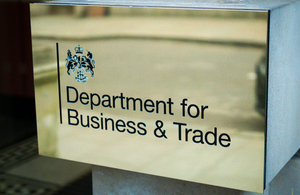Consultation will ensure essential public services maintain minimum service levels during strike action
A new consultation, launched today, will advise unions on reasonable steps they should take to ensure minimum service levels are achieved during strike action.

- Government launches 6-week consultation on the reasonable steps trade unions should take when implementing minimum service levels during strikes.
- The outcome of this consultation will give trade unions the information needed to ensure minimum service levels are achieved.
- Minimum Service Levels balance the ability of workers to strike with the rights of the public who expect services they pay for to be there when they need them.
A new consultation, launched today [Friday 25 August], will advise unions on reasonable steps they should take to ensure minimum service levels are achieved during strike action.
This will help to produce a statutory “Code of Practice” – providing clear guidance that will ensure trade union members comply with work notices given by employers prior to strike action, as required under new laws.
This is help ensure minimum service levels are achieved and ensure unions maintain their legal protections during lawful strike action.
The Government firmly believes that the ability to strike is an important part of industrial relations in the UK, rightly protected by law, and understands that an element of disruption is inherent to any strike. But the public rightly expects Government to act when their essential services are put at risk, and today’s consultation represents the next step to ensure minimum service levels can be implemented to prevent disproportionate disruption.
Business Minister Kevin Hollinrake said:
We believe in the right to strike but this must be balanced with the public’s right to access essential services and get on with their daily lives.
This consultation will give trade unions, employers and workers a chance to feedback on whether our proposals set out a clear and fair process for trade unions to follow to ensure members comply with a work notice.
Industrial action has had a significant impact on access to emergency services and the UK economy, resulting in over 600,000 rescheduled medical appointments since December 2022 and at least £1.2 billion lost in the period June 2022-23 according to analysis by the Centre for Economic and Business Research (CEBR).
Following Royal Assent of the Strikes (Minimum Service Levels) Act, the Government can set minimum service levels within key sectors, including emergency services, passenger rail services and border security.
When minimum service levels are in force for a specified service, if the relevant trade union gives notice of strike action, employers can issue a work notice ahead of the strike, to specify the workforce required to maintain necessary and safe levels of service.
They must consult with the relevant unions on the number of employees and the type of work required for inclusion in the work notice before it is issued.
Notes to Editors
- A link to the consultation can be found here
- The Strikes (Minimum Service Levels) Act amends the Trade Union and Labour Relations (Consolidation) Act 1992 to:
- add a new obligation relating to minimum service levels to the list of requirements necessary for the union’s strike action to be protected from liability in tort.
- and to enable employers within specified services to issue work notices to roster the workforce required to secure the minimum service level on a strike day.
- Consultations have been run on implementing minimum service levels in:
- ambulance services
- fire and rescue services
- passenger rail
- A consultation is currently live on implementing minimum service levels in border security.
- The key sectors covered in the Act are broadly the same set of services that were listed as important public services in the 2016 Trade Union Act, and which have long been recognised as important for society to function effectively.